Bayer Advanced 3 in 1 rose & flower care...
can I get your opinion of the product listed in the subject line....I used it today for the first time.....I was impressed with the fact that there was no spraying involved, just mix and pour around roses. It last for 6 weeks and addresses all the issues, BS, insects, and fertilizing. Is it really that good?
Sure would appreciate some feedback.... Thank you so much for your time. :)
Comments (47)
gardenlady48
Original Author12 years agojackie~ that is what I have done all along, treating individual specific problems...this product was recommended to me...so thought I would try. But I do believe in treating the actual problem w/product provided. I'm sure it wont cause that much damage for this one time experiment . Oh well. just wanted feedback...
Related Professionals
West Milford Landscape Architects & Landscape Designers · Ashland Landscape Architects & Landscape Designers · Graham Landscape Architects & Landscape Designers · Sand Springs Landscape Architects & Landscape Designers · Southfield Landscape Architects & Landscape Designers · Caldwell Landscape Contractors · Fridley Landscape Contractors · Manhattan Landscape Contractors · Olympia Landscape Contractors · Placerville Landscape Contractors · Pleasant Grove Landscape Contractors · Riverhead Landscape Contractors · Tehachapi Landscape Contractors · Whitehall Landscape Contractors · Vadnais Heights Landscape Contractorsbuford
12 years agoI used to use it and still will use it on some roses that have bad thrip problems (I didn't have thrips when I used it). But IME, I still needed to spray for blackspot. The 3-1 may help with disease, but it will not eliminate it.
rosetom
12 years agoYes, it's a convenience more than a perfect cure. True blackspot control is not administered systemically, but through thorough spraying of all the leaves, canes, etc. It provides some protection through a drench, but not the best.
As for killing all insects, That is open to debate. Through systemic action, it will poison those bugs that directly consume parts of the rose plant, but isn't that what we want?
People around here assume that it kills everything, but once again, you have to spray the stuff to do that. With a spray, everything that comes in contact with the surface of the rose will be affected. A drench is different. If the "good" insect doesn't attempt to "eat" the rose, nothing is going to happen. You may kill some localized "good" insect eggs/larvae that may be in the immediate area of the drench, but as for the rest of it - I think NOT.
If it helps with your roses and you don't want to enter the world of regular spraying and ... you notice no ill effects (dead bees, a spider mite problem, etc.), then maybe it's OK for you.
diane_nj 6b/7a
12 years agoI don't recommend it for several reasons. The fungicide can take 4 - 6 weeks to become effective. It takes that long to be taken up by the plant. In that time, blackspot has already taken control, and you'll need some other treatment. The fertilizer usually isn't enough for a good feeding. The insecticide kills beneficial insects (such as the ones that control spider mites) and earthworms. Insecticides aren't usually needed on a regular basis (except in extreme cases, such as midge). And, it is expensive to use.
meredith_e Z7b, Piedmont of NC, 1000' elevation
12 years agoI haven't been keeping up with y'all's posts on the insecticide in Bayer 3-in-1, but I'm not sure that the pests (or good bugs) have to actually ingest plant material with systemic imidacloprid. Doesn't it act like a contact poison, even when used as a systemic?
I know I avoid its use in the garden. It can also kill birds, and it definitely kills bees and ladybugs. I'm not sure how safely it can be applied in various forms, as I just avoid this one :)
Here is a link that might be useful: A very brief link on the insecticide in BA3-in-1
spiderlily7
12 years agoImidacloprid, the active ingredient in Bayer 3 in 1 rose care, has been identified in two scientific studies as the prime suspect in colony collapse disorder, which is killing commercial hives and honeybees in the wild. In other words, it kills our essential pollinators. It's a neutoxin that disorients bees to the extent they can't find their way back to their hive. The bees die, their queen dies, and we all lose the means of pollinating our vegetables and fruits. It's a huge problem.
rosetom
12 years agoI'm more interested in getting people to grow roses. If this helps someone over the excruciating spray regimen that some of us use, then I'm all for it ... in limited circumstances. It's an approved product, period, and available for sale almost everywhere that these products are sold.
This stuff about killing bee hives from a systemic drench is not authoritative and someone saying it kills birds is pure hysteria.
gardenlady48
Original Author12 years agoOkay, thanks to all, very informative.
However, can you all share your favorite product for BS, and insects then???
Thank You
dublinbay z6 (KS)
12 years agoFor insects--usually wait patiently and the good bugs will come along and eat 'em up. Or use a strong stream of water from the hose. Or get in there with your fingers and wipe aphids off the blooms, pick those little green wormy things (sawfly larva) off the undersides and edges of the leaves--hmm, can't think of very many buggy critter types that plague my roses--especially since I quit (years ago) killing off the good bugs with insecticides intended for the bad bugs.
For BS, first line of defense is quit buying BS-prone roses just because the blooms are lovely (I have two of those, so I'm guilty also.) Since then, all roses coming into my garden must FIRST meet the good disease-resistance test. OR even better, be exceptionally disease-resistant! I do spray for BS a couple times in the spring--with Bayer Advanced Garden Disease Control for Roses, Flowers, and Shrubs (or some such awkward name)--and a couple times in the fall. Since I know my roses, I know which ones never need spraying, which ones only occasionally need spraying, and which ones (a couple hybrid teas) regularly need spraying. In other words, I do not spray them all--just the ones that NEED spraying. And I rarely spray in the hot, hot, hot summer--too hot here in July and August even for BS much less for human beings!
That about it. I try to keep it simple and uncomplicated. Buying disease-resistant roses and feeding/watering them so they remain healthy is usually the best defense, I find.
Kate
meredith_e Z7b, Piedmont of NC, 1000' elevation
12 years agoThe bird toxicity is mentioned in lots of literature on imidacloprid, and I'm not prone to hysteria ;) I've said that I have not researched forms or rates that make this one safe enough for my comfort. I'm just noting why I don't use it.
"Okay, thanks to all, very informative.
However, can you all share your favorite product for BS, and insects then???
Thank You"
I do use spinosad products on the buds for some big problems. I use the Fertilome bagworm liquid, and I spray before the plant has blooms to reduce the effect on bees. I try to hand-squish the really mean stuff, but I do have times where too many things are eating too many buds. I try really hard to let the natural predators do it, though. So mainly I move ladybugs or preying mantises from the grass to the rose garden :) I don't want the good bugs to die, at all.
I also use an asphalt pruning sealer because cane borers became a big problem. The bees love my garden a bit too much, lol. They can bore into the ramblers by my woods, darnit!
BS is mostly not a problem anymore. I use the Bayer product without insecticide on small plants that might be hurt by BS, and the others seem to go through spells occasionally and recover fine. If I can't prune out enough canker on a rose during spring, I'd use a fungicide on it, too, but I'm having success with pruning and sealing nowadays.
I don't mind a few spotty leaves, but I realize that BS can weaken a plant if it's too bad. I think my plants are mostly mature enough that they shake it off nicely by the time it gets hot enough for the weather to thwart that disease. It was more of a problem when my garden was younger.
buford
12 years agoI use the Bayer Advanced spray for BS. It's extremely effective. The only true insect problem I have is thrips. When I did use the 3-1 I never had thrips. So I am going to try it again on those roses that get ruined by thrips.
karl_bapst_rosenut
12 years agoIf the all in one, 3 in 1, and 2 in 1 products were that good, all the experts and exhibitors would be using it.
None I have spoken to use it.
I haven't sprayed anything for 10 years. I have few destructive insects but I do have lots of predatory insects, birds, bees, and butterflies.rosetom, the fact it may work well in some cases, doesn't mean it's safe for the environment. I too try to encourage new rosegrowers, but I advise them not to use insecticides and to buy only disease resistant varieties. There are several and they're not all Knock Outs. All they have to do is look at my 400 roses all season to see my method works.
spiderlily7
12 years agoWhat Karl said. Instead of dismissal, I think hysteria is an appropriate reaction to the accelerating decimation of the pollinators of key food crops, let along ornamental plants, and as usual, European countries are ahead of the U.S. in protecting themselves against toxic products such as neonicotinoids. Here's a link to an article describing the study by a Harvard-based scientist that gives a very good idea of the methodology employed to assess the effects of imidacloprid on bees. In a drench, the chemical works its way into the structure of the plant, including its pollen which--guess what--is ingested by bees. I look forward to reading the actual study when it's published in the June Bulletin of Insectology. If for some reason this link doesn't work, the article was posted April 6 in "Wired Science" of wired.com
http://www.wired.com/wiredscience/2012/04/neonicotinoids-colony-collapse
rosetom
12 years agoKarl,
I didn't intend to involve you in this conversation. Neither did anyone say you weren't successful at growing roses. However, all you need to do is read the post above yours to now know someone who's used it. You also must recognize that things that work for you in zone 5 may not have any applicability in some place like Georgia. Granted, the OP shows as zone 5, too, so I'll concede that point.
As for imidacloprid, I've used it for years. It's one of the tamest insecticides out there - that's the issue I have with it. Its systemic action lasts about 3 days in my environment - sprayed, that is. I have had better success with Avid against thrips and like buford says, that's our primary issue here in Georgia. Well, except for the Japanese beetles. Merit (imidacloprid) is the perfect thing for them. Anyway, if buford says the Bayer 3-in-1 tames the thrips, I think I'm going to try it. It might be nice to take a break from my spotshot sprayer and 10 gallons or so of spray that I use every week.
michaelg
12 years agoNote: people frequently confuse these Bayer products:
All-in-One = soil drench product with cheap fertilizer, imidacloprid insecticide (Merit) , and tebuconazole fungicide.
3 in 1 = combo spray product with miticide, imidacloprid insecticide, and tebuconazole fungicide.
Frankly, there is little excuse for combo pesticide products. They are marketed to novice gardeners who don't know how to diagnose and treat particular problems (present company excluded, of course). They entail using chemicals unnecessarily. For example, insecticide is rarely needed on roses, while fungicide may be needed every two weeks. For another example, miticide is rarely or never needed unless you are unnecessarily using an insecticide such as Merit, which causes mite outbreaks. For a third example, one of the environmental hazards of tebuconazole fungicide is leaching through sandy soil into groundwater. With the soil drench product as opposed to spraying, you are using around 20 times as much of the chemical per plant treated.
Incidentally, if people feel they need to use insecticide such as Merit for thrips and japanese beetles, they should remove all the open and partly open flowers and then just mist the tight buds with spray--or the young foliage if the JBs are also eating that. It is deeply irresponsible to spray insecticide on open flowers. I don't feel right about spraying buds either, so I don't use insecticides on the roses at all.
Soeur
12 years agoI only wish there was minor insect activity on roses here. Unless you do something about it, in spring sawfly larvae will decimate the foliage. I'm not talking about a little damage, more like every leaf chomped on severely. I use spinosad, carefully.
buford
12 years agoI've not used the Bayer 3-1 drench for a few years. In those few years, the thrips are out of control. I have to do something, I can't even bring roses into the house or work, because all I see is little worms on the tv and computer screens. It's disgusting. So I'm using it on a few roses. I wish it didn't have chemical fertilizer it it, that to me is the only drawback.
A few years ago, I had thousands of Japanese Beetles that invaded not only my roses, but crepe myrtles, rose of sharon and cherry trees. They would have defoliated the trees. I spray with Sevin that one time. There were literally piles of dead JBs on the ground. Since then, I haven't see more than a dozen in a year. I don't regret it.
spiderlily7
12 years agoBuford, if you're troubled by thrips, try releasing Amblyseius cucumeris, a predatory mite that's the natural enemy of thrips; You can buy them online. . I raise several hundred roses in south Louisiana bug and fungi heaven, and I do it without spraying. It can be done, with good cultivation and companion planting to create a biodiverse environment that encourages a natural balance of insects including beneficials like ladybugs. hoverflies, and green lacewings, along with huge populations of lizards, frogs, and birds. I have no aphids, leafrollers, or thrips thanks to them and a side benefit are the healthy butterfly populations. MichaelG, thank you for the clear explanation of those "combo" products; more people need to understand that. My mind also reels at the idea of spraying open blooms. It creates a very efficient way to kill bees and other beneficials. All of our personal choices about chemicals in the garden add up, and it's killing the creatures we all need.
buford
12 years agoSpider, I do have plenty of predatory insects, but they are overwhelmed by the thrips. I can tell you that I never get a bloom in the spring on Mlle Franziska Kruger or Duchess de Brabant because of the thrips. They are also in other roses, but those are the two worst ones. I think for those roses, a systematic insecticide may help. I wouldn't use it on all my roses (I stopped using it because it became too expensive and time consuming for 100+ roses). But I feel these are extreme cases. I also used it when I had a bad lacewing problem on my azaleas and nothing else would help.
I really don't want to spray open blooms, and that doesn't help with thrips anyway, since they ruin the bloom before it opens. The systematic is less of a problem because it only effects bugs that actually chew or suck on the roses, which is what we want.
spiderlily7
12 years agoBuford, that's interesting about your MFK and DdB blooms, or lack thereof, because they're among the first spring bloomers in my garden. What's even more interesting is that you used a systemic chemical control to reduce your population of lacewings, since lacewings are natural predators of thrips and many other insect pests. Here's a link with more info:
http://www.thebeneficialinsectco.com/green-lacewing-larvae.htm
Sounds like you need more assassin bugs, which prey on lacewing larvae. Butterfly weed and other butterfly host plants are also good for attracting assassin bugs, because their larvae feed on butterfly larvae. If you plant enough, everybody survives.
The beneficial/pest insect interaction is all wonderfully choreographed, and it's why I continue to interplant my roses with a huge variety of host plants and wildflowers and then get out of the way. I did the same in a mountain garden in western North Carolina. It works.
deervssteve
9 years agoOld topic. I had multiple fungi last year that set my new roses back. I tried spraying first. The product works and I used on my 9 HT as a preventative this year. When summer hits, I will switch to plain rose food. Costco has it now $19.95 for 5 pounds.
jerijen
9 years agoIt takes 5 years for that stuff to work its way out of your soil. Meanwhile, don't grow anything there you want to EAT, like strawberries . . .
deervssteve
9 years agoThe area I planted roses will never be for growing food. I have a garden area that has never been used for roses. I gave up on having a food garden because of the deer. I have some fruit trees and all the critters get to them before I can. I have a lemon tree that is the exception and it is left alone.
seil zone 6b MI
9 years agoI just feel that it's over kill. Unless your roses need fertilizing, also have an insect problem and have a fungal problem all at the same time then this isn't the right product. Use the specific product for the specific thing you need to handle. Combos aren't the answer IMHO.
Patty W. zone 5a Illinois
9 years agoThis maybe very simply put but I say it anyway. Most of Europe and Canada has banned the use of insecticides. There is an incredibly good reason why? The USA has not joined in yet and it's not because they care about us. Lobbyist for corporate America! If others have finally figured out what a detriment insecticidal use is to our environment. When oh when will the US take a stand. Big money money money.
wirosarian_z4b_WI
9 years agolast modified: 9 years agoI've looked at Bayer's 3 in 1 & felt that it was waaaaaay too expensive to use for me because I have 100+ roses plus some of the other points made above about using an all in one product. However I think it does have its place, especially for someone who grows a few roses in pots & doesn't want or have room for all kinds of spray equipment & bags/boxes/containers of fertilizer & pesticides.
jacqueline9CA
9 years agoI don't think pesticides should be used routinely at all. Only if there is a very good reason. Bayer makes a perfectly good fungicide which works fine without adding all of that other stuff. Pesticides kill bees.
Jackie
deervssteve
9 years agoI have 20 rose bushes; 8 are HT. In March and April, most of the HT get rust, mildew,white flies and Aphids. My plan is to feed the 8 HT with 3 in 1 for two months, everything else regular rose food. If I didn't have the issues, I wouldn't use the product. I tried spot spraying with a squeeze bottle with insecticide or fungicide. When I had 200 roses, I sprayed with an atomist electric sprayer and used a gas mask. 3 in 1 is expensive but I won't be using a lot. My physical abilities are limited and I wanted to be able to look at something beautiful.
Until I planted the 8 HT, I hadn't had any for 25 years. The other roses were only watered and fertilized. I couldn't have HT because of the deer. I wanted to have blooms for most of the season and modern roses are the way to go. They are all caged. I really enjoy my OG roses, but their blooming is sporadic. The approach I am using works for me.
steve_gw
9 years agoIf you're in IL one of the best products to use for black spot is Mancozeb. Sold under product name Bonide. A preventative program is always the best, with a good spraying right after pruning, and weekly or bi-weekly there after....
michaelg
8 years agosummersrhythm--Please don't use combo products for reasons explained in my post above. I don't have rose midge, but two approaches commonly recommended for chemical control are (1) to apply imidocloprid (Merit) soil granules evenly to the soil within the drip line when new growth appears in spring and again 4-6 weeks later or (2) to spray the new growth with cyfluthrin regularly. Do not apply cyfluthrin to open flowers.
Both these products are sold by Bayer. Read the active ingredients to see what is in the bottle.
Search gardenweb roses midge for more information.
henry_kuska
8 years agoThe following was stated: "If you're in IL one of the best products to use for black spot is Mancozeb."
H.Kuska comment: "best" ? Personally, I would expect that "best" would include some consideration of "safest" - i.e. best for me in the long run. Because of the possible link between Parkinsons and Mancozeb, I suggest using the Precautionary Principle and avoid using it.
"The findings from the meta-analysis study show that the chemicals we use to treat food crops and the soils that we grow them in correlate to the list of chemicals that increase the risk for development of Parkinson’s Disease in humans.
Pesticides: 58% increased risk for Parkinson’s
Herbicides: 36% increased risk for Parkinson’s
Insecticides: 31% increased risk for Parkinson’s
Solvents: 41% increased risk for Parkinson’s
Mancozeb: 118% increased risk for Parkinson’s
Mancozeb is actually given to animals to create Parkinson’s Disease so that scientists can study the illness. Therefore, it is not surprising that it is a known risk factor for getting the disease."
http://dailyhealthdigital.com/preventing-parkinsons-disease/
-------------------------------------------------------------
H. Kuska comment: After a correlation is established, then it is common to try to determine the chemical pathways involved. Science is at that stage regarding Parkinsons and Mancozeb. This is from a recent paper: "Our results further confirmed the effects of paraquat,
rotenone and maneb and importantly showed dose-dependent effects on cellular αS levels and release".
==================================================================
Also concerning the use of the word "best" (for me) is a consideration of what the use of Mancozeb will do to my soil?
http://www.hindawi.com/journals/tswj/2014/702909/
summersrhythm_z6a
8 years agoThanks Michael for the input. I thought I could save some work, time and money by using this product if it works on midge. I have midge and BS(2 of the 3 things this product listed), it takes me a long time to spray over 500 roses; and this product is much cheaper than what I am using now-Bayer's 2 in 1, I need at least 4 bottles of Bayer's 2 in 1 each treatment ($45), and I have been using much less amount for all the roses. If I use Bayer's 3 in 1, the cost per treatment could be less than $5. That's why I was asking if.......just looking for short cut. :-) We can't buy Merit soil granules in NY. I have Bayer's completed Insects Killer, Bioneem. I am really behind on spraying for midge, and didn't spray for JB this year, I don't have a lot of JB so far, have been stepping on JBs these days. The weather here always rain/windy. Just sprayed for BS on some of roses last weekend, now I see more BS started on other roses, waiting for the wind to die down, so I can spray again. Thanks again.
Buford_NE_GA_7A
8 years agoI don't use it anymore, too expensive and too much overkill. I have had to selectively spray unopened buds for thrips a few times a year. They are still a big issue. I also remove any damaged or spent buds with thrips and put them in a sealed plastic bag and throw them in the garbage. I am hoping that cuts down on the future thrip populations. But they still ruin my roses. This year, we had a mild spring and I did manage to get a nice clean first flush without thrips. Then it became hot and sure enough, they were back. UGH, I hate those things.
summersrhythm_z6a
8 years agoBuford, You got thrips down south, I got midge up north. Rose gardening is about challenge. :-) Compare to other difficulties people have to face in life, these are just pieces of cake. I am not a chemist, lock of knowledge on which product is stronger. I am using Bayer's 2 in 1 for midge control, I am wondering the 2 in 1 might be as strong as 3 in 1, they must be strong stuff if they can kill midge. Good luck with you down south! Bioneem(organic) works on thrips, I just googled for you.
michaelg
8 years agosummersrhythm--
3-in-1 contains a miticide that you wouldn't need except that 3-in-1 also contains Merit, which causes mite outbreaks. "Complete Insect Killer" I think is a product for soil and turf that contains cyfluthrin and Merit. You could use it as a Merit soil drench for midge except it contains an unnecessary second insecticide that does no good in the soil--and all insecticides do harm. Again, any combo product is a bad idea. Always read the active ingredients and learn what the various chemicals are supposed to do.
If you spray fungicide regularly. you could get cyfluthrin-only concentrate and add it to the fungicide spray to help with midge. Don't apply to open flowers, but be sure to treat any young shoots. Do you have a severe midge problem that prevents repeat bloom?
summersrhythm_z6a
8 years agoThanks Michael. I have a lot of blooms now after using the Bayer's 2 in 1, and sprayed Bayer's complete insect killer (front yard), Bioneem ( back yard) a couple of times. But I still have a lot of roses only have 50% of the buds can make it to bloom, and still have some roses without any blooms, I knew I didn't put enough amount Bayer's 2 in 1 on all the roses. I didn't put any around once bloomers, Polar Joy rose trees, newly planted bare root roses (planted in late May early June), now I see midge damage on those. It's time to treat them. I got one beautiful bloom out of MAC two weeks ago after 2 years of no blooms, that's a good start ....... Which product contains cyfluthrin-only? I googled it and found eBay has it-Cykick($38). Is that the one? I tried to spray only Bayer's complete insects killer for midge last year, It didn't work without Bayer's 2 in 1. I am willing to mix the fungicide and cyfluthrin only. If that can kill midge and I don't have to use Bayer's 2 in 1.($45 per treatment) If I still have to use both of them, it would cost me even more than current treatment($45+$38), I learned cost accounting, can you tell? :-) Thanks for a great idea.
michaelg
8 years agoOne of the Bayer insecticide products in a blue bottle is cyfluthrin only. What is in the 2-in-1 nowadays?
altorama Ray
8 years agolast modified: 8 years agoInteresting article about imidacloprid and bees
EPA study
Within this link you can download a study from Australia, who use the same pesticides, but have not experienced any indications of colony collapse.http://archive.apvma.gov.au/news_media/chemicals/bee_and_neonicotinoids.php
summersrhythm_z6a
8 years agoGood morning Michael. 2 in 1 is Bayer Advanced 2 in 1 Systemic Rose & Flower Care.
michaelg
8 years agoI was hoping to get you to read the label :).
It used to have a very dangerous insecticide, but checking online I see that nowadays it contains imidicloprid (Merit) and a cheap fertilizer. Merit in the soil can help with midge control if you cover all the area under the foliage.
summersrhythm_z6a
8 years agoSorry Michael, I am at work far away from home. Vacation is over back to work today. :-) Thanks for checking. The 2 in 1 worked pretty good, it's just not cheap when you have 500+ roses.....
michaelg
8 years agoPerhaps Merit concentrate or granules without the junk fertilizer would be less costly.
summersrhythm_z6a
8 years agoThanks Michael. Just googled, they are not for sale to NY, SC, CT. That's ok, just cost me a scooter tire each treatment. It could be worse. At least I have blooms. :-)
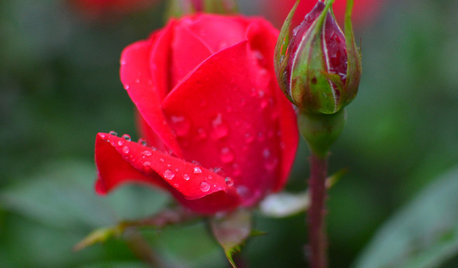

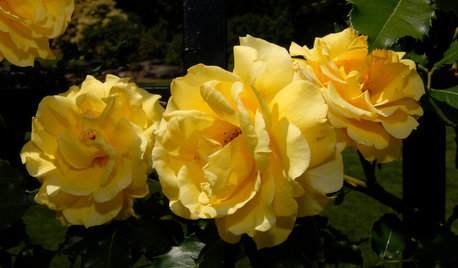
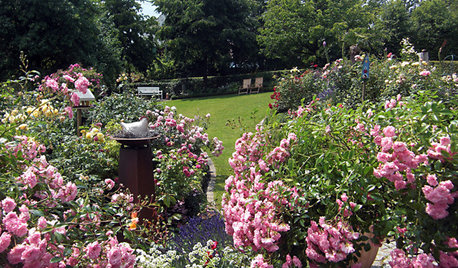
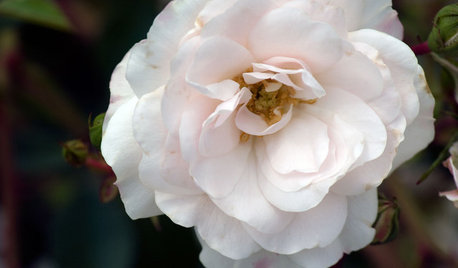
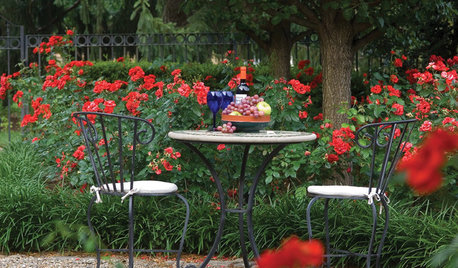
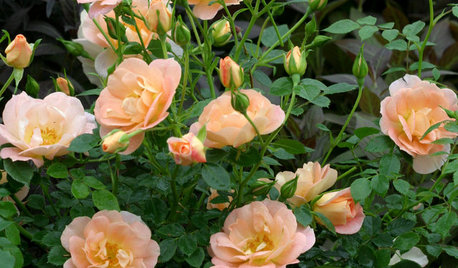

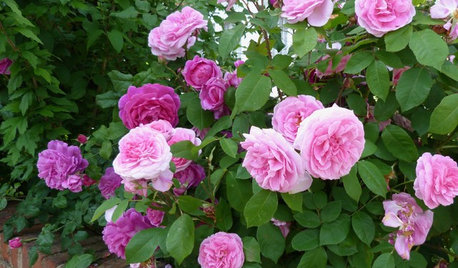








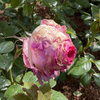
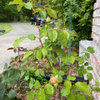
jacqueline9CA